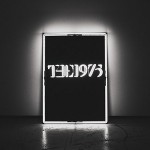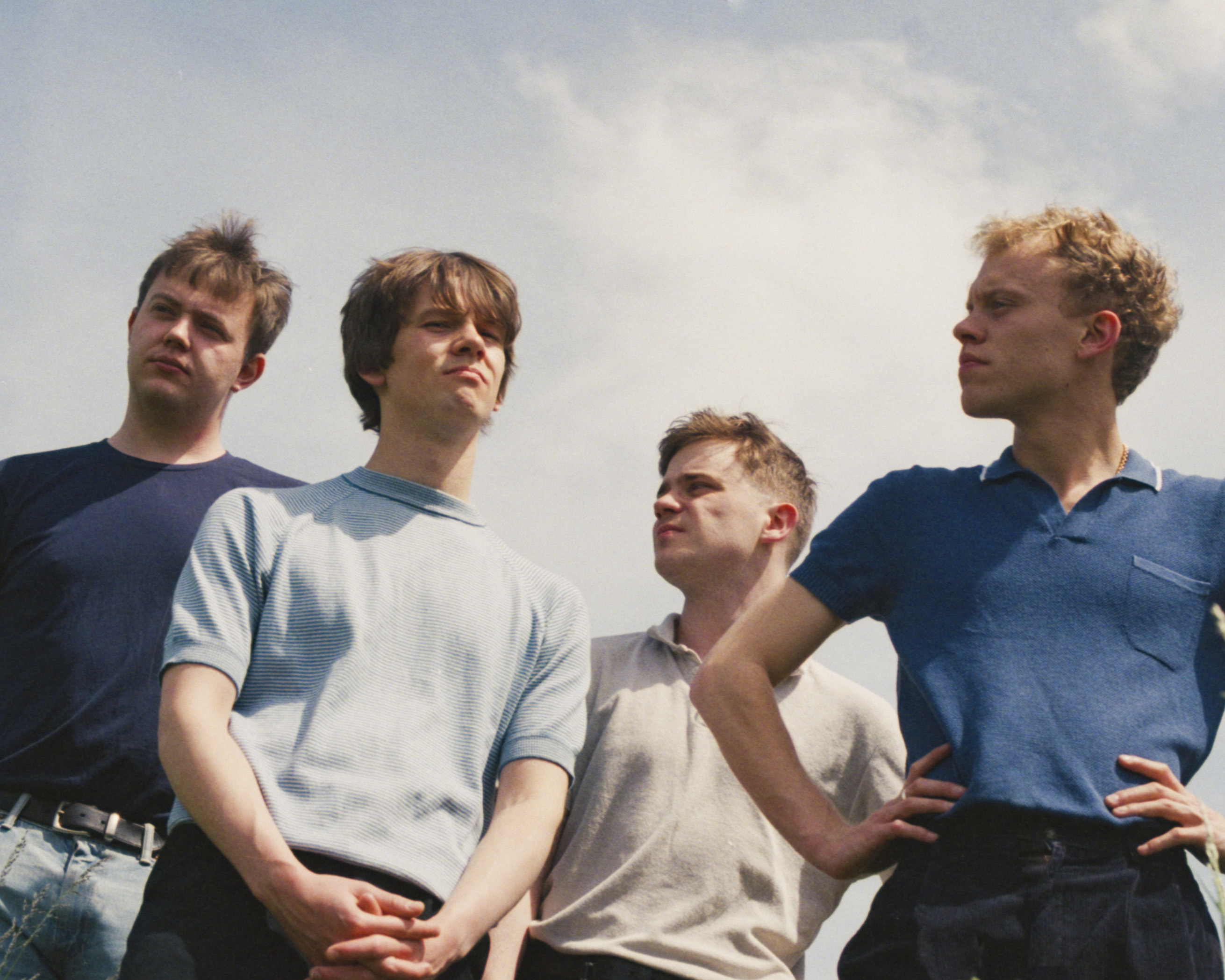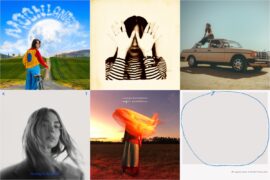The 1975 staked their claim with pop guitar & synthetic funk. Their uplifting sound is now being heard across genres, but we won’t forget where it came from.
— —
Chicago’s House of Blues is packed to the walls with anticipating fans awaiting the heightened reign of The 1975. It’s early 2016 and the start of an “era,” with the band’s recently-released second album hitting playlists and radiowaves. Tristan April has traveled to see them. She’s armed with her best friend, another young woman she met through her concert attendance and dedication to the band’s fanbase. Her bare arm boasts a relatable tattoo, one to be celebrated among the crowd. Framed in an ink-lined lighter, “Smoke is in your eyes, you look so alive” read the lyrics from “fallingforyou,” a 1975 deep track. You could call it a cult classic. “Though any concert for me is a comforting place, they had a special way of making a venue feel like home,” writes April in reminiscence. “I was so moved by the melodies that I inked their words into my skin, a constant reminder of the barrage of enchanting emotions they gifted me.”
Listen: “fallingforyou” – The 1975
April’s words hold a passion, comparable to the words of any deeply invested fan. But while some fans hold handfuls of soulful connections, their relationships to The 1975 seem different. It seems every fan you meet has a personal story, a reason the band has resonated so delicately within them. It’s a shared spirit, held so closely by hundreds of thousands. It’s an incomparable sight.
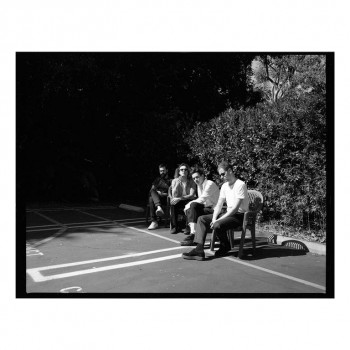
Upon mentioning The 1975, listeners are given a vivid image – a poppy, dirty, ’80s-inspired bubble of drained energy. The major keys and funky guitar parts resonate through one’s days and lend a taste of the band’s never-changing, yet constantly evolving production style. The sound is a signature, one that’s identifiable without formal confirmation. It’s a trace left on every piece they create, a stamp that has been replicated to little success, despite the exceptions at the band’s hand themselves.
The 1975 is a musical anomaly. While they’ve made the iTunes top charts, and their songs can be heard on international radio stations, they tend to fly under the radar both release and publicity wise. Still, with minimal exposure, they’re one of the biggest bands in the world, an acquired position they predicted themselves.
Listen: “The Sound” – The 1975
Now, the pattern of their reach has begun to change. While working on upcoming music and staying out of the public eye, The 1975 have begun to alter the indie-pop genre as we know it, lending their sound and influence to more than a handful of up-and-coming artists. They may be seen as a musical inspiration, or as an artistic big brother: Whichever way you spin it, the sound that won The 1975 a spot in fans’ hearts as an individualistic, non-comparable entity, is becoming far more common. The only surprise is the band’s personal involvement in the advancement.
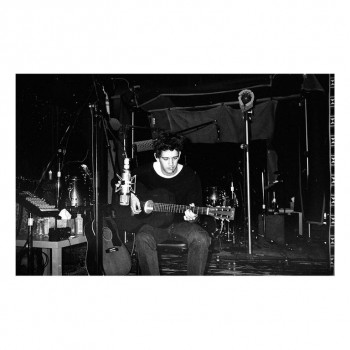
We at Atwood Magazine are no strangers to The 1975. Across our staff, they are one of our most commonly shared interests. If you search the band’s name on our website, over five pages of search results will greet you, from reviews to artist comparisons and our 2014 interview with The 1975, Sex, Drugs, and Music. To say we’ve been watching them since the beginning is an understatement; many of us have grown intense bonds and owe parts of our musical identity to their sound. In the spirit of April, we too believe they’re special. Now, it’s clear the progressing music world does too.
Maybe it’s the sound, the accessibility of the pop rhythms, or the emotional understanding found in the band’s darkest lyrics. It could be a combination of it all: But what stands as factual is the idea of expansion within that sound. The 1975 are shaping their surrounding acts, and with it may follow the wholehearted praise earned by fans.
In the past years, the band’s label, Dirty Hit, has grown with stellar indie-pop additions. The label itself has a distinct sound, one that seems to follow closely in the footsteps of The 1975, its first big success. The band’s synth-driven sound is a mixture of live instrumentals and computer generated adaptations, a sound that gives weight to both live and recorded performance. Incredibly, in either setting, the tracks sound nearly identical.
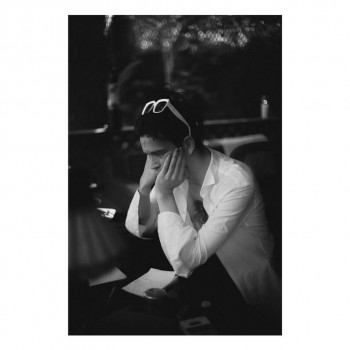
The revival of ’80s synth keyboards and electric guitars tuned to match may not be owed entirely to The 1975, but it’s impossible to argue that its resurgence was completely unrelated. Since the release of the band’s tiringly long-titled album release, “I like it when you sleep for you are so beautiful yet so unaware of it,” (For the sake of easy reading, let’s call it ILIWYS) mainstream pop has revived the sounds once so common in dance pop. The genre has grown darker, yet more synthetically based, incorporating the two largest traits that have make The 1975 so easily identifiable from the start.
The 1975 have had a large hand in the growth of the Dirty Pop repertoire, lending their production skills to up and coming groups. The first of this trend was The Japanese House, the one-woman act created by Amber Bain, whom for its beginning months, was reckoned as anonymous. While Bain was unidentified, many assumed The Japanese House was a front for The 1975, conspiring about vocal manipulation and sound arrangement. The frequent clue was the production’s similarity to The 1975’s first album, a sound original and unborrowed at the time. Listeners later learned that the production was designed by Matty Healy and George Daniel, the masterminds behind The 1975’s iconic sound.
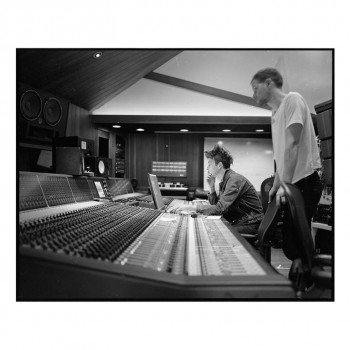
The advancement of The Japanese House was quickly, and not-so-quietly followed by the band’s involvement in the writing, directing and production of Pale Waves, a British, female-lead pop group synonymous with the sound and broken-hearted musicality of The 1975. In both acts is a similar tune, literally, but in the sense of a new artist’s musicality being embraced as independent, yet celebrated in the sound of an evolving band that paved the way before them.
But what is it that lends The 1975 such an influential spot in their genre, and arguably, those that barely relate?
The answer may lie in their own confidence, the ability to create unapologetic work, even in the days before formal recognition. Under previous names like “Drive Like I Do,” the band constructed their undeniable sound on instruments alone, before adding the ultra-identifiable synths and strings. It’s the contagious bop-pop sound that stays in listener’s ears for days on end, but something else entirely that makes the band so memorable.
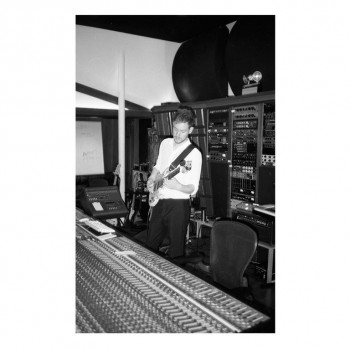
Perhaps it’s the odd matchup of fans and messages, in which songs with lyrics about doing lines of cocaine in wedding bathrooms are comfortably exclaimed by teens in crop tops and adidas sneakers. Maybe it’s the love of the band and their fans, knowing that though their messages may resonate overhead for many, they’re still relatable in an interpreted and learned way. It might be because the band celebrates every fan, every person, every type, and those celebrations are heard in their lyrics. Or because their music, even in its first days, was truly so unique it helped an entire generation, raised in mismatched times of social and political change, feel understood.
Their music… made an entire generation, raised in mismatched times of social and political change, feel understood.
Listen: “Robbers” – The 1975
Whatever the secret to their influence may be, the band’s confidence has only amplified the range of their musical effect. They’ve claimed they’d be the biggest band in the world, and for some, they are. In three years, The 1975 released a debut album and went on to release a Live at The O2 YouTube special. It’s an unquantifiable amount of growth, niche, yes, but Beatles-esque in their American manifestation. And they use this to their advantage. When their social media accounts go dark, or a cryptic teaser is released, they’ve got eyes glued and major music publications talking about the band’s next steps. The 1975 have taken their time when it comes to releases, but in no way has that slowed down their success or general acceptance. In fact, it’s only amplified it in an indie-band version of the Taylor Swift affect: the ability to stay out of the spotlight yet have a name that resonates in the media, even when they aren’t directly involved. You can see that clearly on our site: five search pages, and only a small handful of articles that are directly about the band.
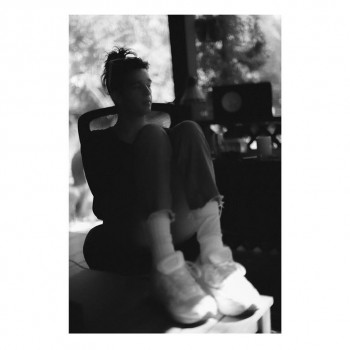
The 1975 may be the band of our generation. It’s a definite possibility, not yet solidified. But more likely, they’ll go unnoticed as the unsung pioneers of the latest wave of synth-pop. Everyone is doing it: it’s the sound of now. The 1980s revival and instrumental dance breaks written with undeniably energetic passion have stemmed with their heavy support. Still, the dark lyricism and heavier beats found in today’s pop culture have been appreciated and reflected on by The 1975 in a totally incomparable way, one that allows the musical fluidity and danceability of the past while building the steps for the evolution of modern pop.
Until their next release, speculated to hit radiowaves in early 2019, the 1975’s first two albums are reaching an early “classics” status within the fan base. For those same ears, one day these songs will be the most rejoiceful oldies, the tracks that carried them through self-exploration and adult enlightenment. They’re the tunes shaping an entire culture, with life-or-death loyalty from the listeners addicted to and comforted by them. The 1975 is a drug, an inspiring injection of pop and reality, plus a dark twist of heartbroken, depressed, weapability with funk guitars. The contradictions, light and dark, have created a force unlike anything seen before, and the sound is being craved and crafted. So, until the next release, there can be comfort in conforming artists and the new sound, and the listeners who so loyally know who it came from.

— —
:: From the Fans ::
We asked listeners what they thought of The 1975’s influence on music. Here’s what they had they say…
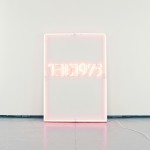
Honestly, I have not seen a more powerful force in music in recent memory. The 1975 are an unparalleled tour-de-force, bending and transcending genres in ways that are essentially unmatched. They have taken their craft and transformed it into something beyond themselves altogether, and it is truly inspiring to see them take on music in a way that never feels stale or recycled. The 1975 don’t have a craft, they are a craft.
Going off of that, I would say that they are arguably one of the most influential artists of the modern era. If you think about it, nearly every “indie pop” (or supposedly so) artist has a sound that echoes or flat-out mirrors theirs, in some way. If you ask any number of these artists, they’ll likely cite The 1975 as influential or impactful or special to them, in some way. The 1975 are like some kind of innocuous plague, and undoubtedly permeate the modern music world in ways many people likely aren’t even considering. They are, after all, “the biggest band you’ve never heard of.”
Personally, The 1975 have impacted my own life in so many ways, whether intentionally or unintentionally. Most distinctly, I vividly remember back in December 2015, I saw them play in Philadelphia, and they played some songs off the yet-to-be-released i like it when you sleep… They played “Somebody Else,” drenched in a pink glow, and I remember turning to my friend and proclaiming, “This is going to become my favorite song of all time.” To this day, I still have the Snapchat video I took that night. When the studio version subsequently came out a little over a month later, I was living in London, and I remember feeling that my initial proclamation came true. To this day, it is still my favorite song of all time, and I have literally listened to it at least once a day, every single day, since December 2015.
To call The 1975 “my favorite band” would be a gross understatement – I love and appreciate this band more than words could ever properly express, and have since 2013. It sounds so tawdry, but The 1975 are truly more than a band – they are an experience unlike anything else. – Maggie McHale, Atwood Editor
There are so many reasons that swirl around in my head when I try to think of the power that The 1975 holds, but the one that is most prominent is their unwavering love and respect for pop music. While they are undoubtedly a product of the genre, they stick out like a crown jewel. That is, if jewels shone like neon signs. In a culture where there seems to be a divide over whether or not pop music is a genre that deserves respect, The 1975 are unabashedly outspoken for their love of the genre. By creating music that is able to resonate with most anyone, they are pulling people into this genre that they are so afraid to love. Through experimentation with sound, they are showing that pop doesn’t have to be limiting and that it really can be for anyone. They’re changing opinions, and people are hating them for it. But those same people listen to ‘Somebody Else’ alone in their cars at night and cry, so secretly, they’re loving them for it.
I like to think that they are influencing other pop artists to borrow from a wide variety of genres and be unafraid to experiment with sound. They’re also making a path for ’80s synth-pop to come back into style, which is definitely a plus in my book. – Sara Santora, Atwood Staff
There is an indescribable feeling that accompanies all of the memories that The 1975 have given me. Though any concert for me is a comforting place, they had a special way of making a venue feel like home. It was the songs that made me feel alive, the fans that easily bloomed into friends, and the everlasting memories that stay warm like embers in my chest. I was so moved by the melodies that I inked their words into my skin, a constant reminder of the barrage of enchanting emotions they gifted me. They were the reason I met my best friend and soulmate, why I went to the big city for the first time, why I found a new version of myself. The 1975 changed me, and I’m thankful for that. – Tristan April, The 1975 fan
? ? ? ? ?
